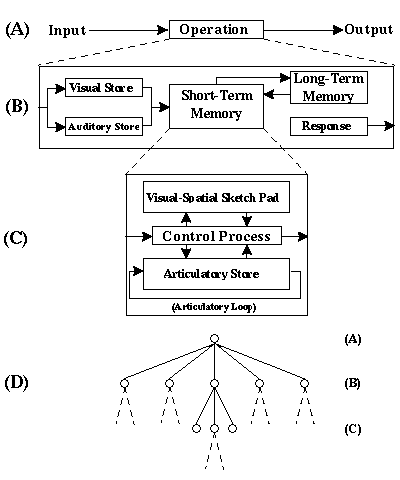
 |
|
Recursive Decomposition Recursive decomposition (Palmer & Kimchi, 1986) refers to the process whereby any complex informational event at one level of description can be specified more fully at a lower (and simpler) level of description by decomposing the event into:
The information processing model of memory provides a good example of recursive decomposition.
The research strategy called functional analysis (Cummins, 1983) relies on the principle of recursive decomposition. Recursive decomposition should not be equated with reductionism, which is based on the assumption that the best of correct level of description is the most specific one (e.g., at the level of physics). References:
(Revised November 2010) |
|
 Above Figure -- Model of Memory
Above Figure -- Model of Memory